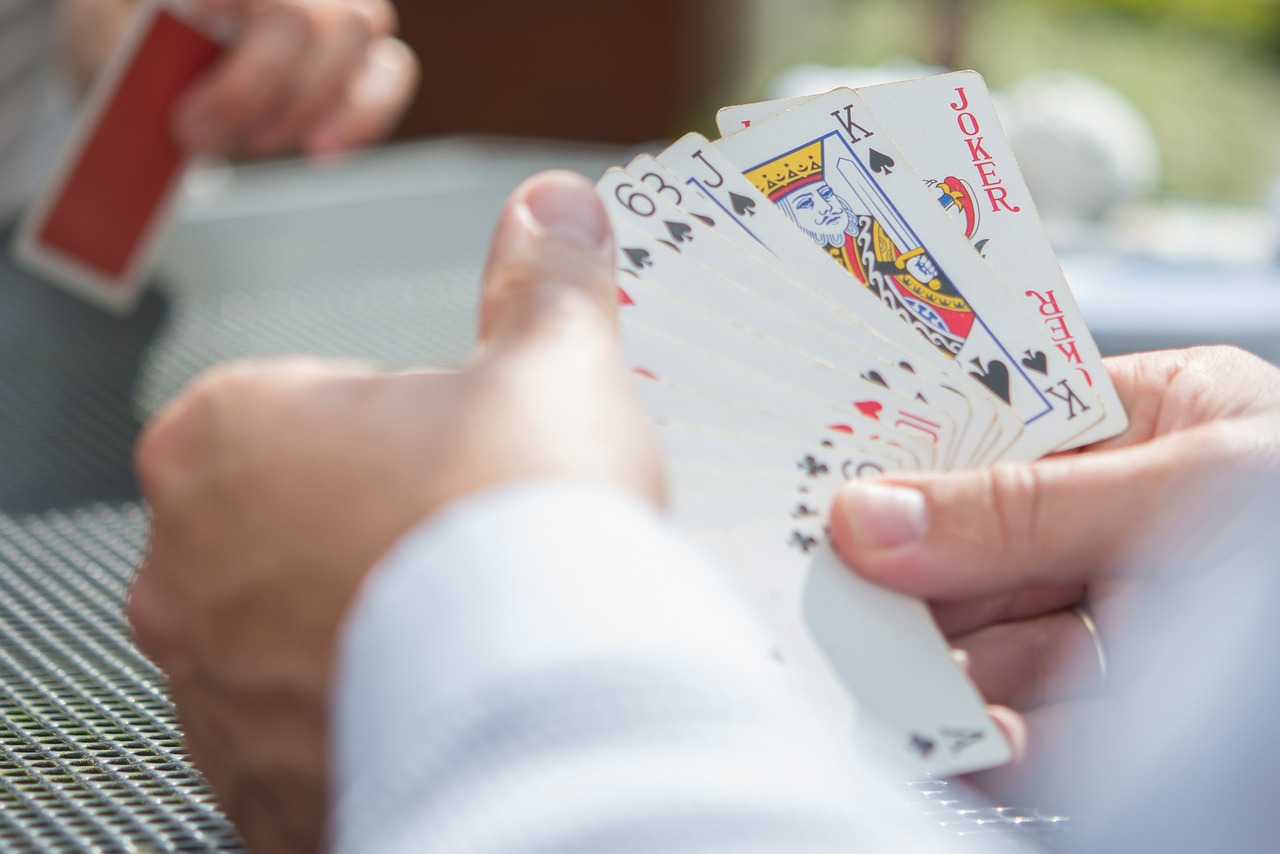
Poker Math: The Importance of Probability and Odds
Poker is often described as a game of skill, strategy, and psychology, but there’s another crucial element that underpins all successful play: mathematics. Specifically, understanding the concepts of probability and odds is essential for making informed decisions and improving your poker game. In this article, we’ll delve into the world of poker math, explaining essential poker tips for newbies and how they can give you an edge at the poker table.
The Building Blocks: Probability and Odds
Before we dive into poker-specific applications, let’s clarify some basic concepts:
- Probability: Probability is a measure of the likelihood of an event occurring. In poker, it helps you assess the chances of making a particular hand or drawing specific cards.
- Odds: Odds represent the ratio of the probability of an event happening to the probability of it not happening. Odds are often expressed as a ratio or in fractional or decimal format.
Why Poker Math Matters
In poker, having a solid understanding of probability and odds can help you make better decisions in a variety of situations. Here are some ways in which poker math can give you an edge:
- Hand selection: Knowing the probability of making certain hands can help you choose which starting hands to play. For instance, if the odds of being dealt pocket aces are 1 in 220, you’ll know that they’re a rare but strong starting hand.
- Drawing decisions: When deciding whether to call or fold when chasing a draw, understanding your odds of hitting can help you make an informed decision. For example, if the pot odds are greater than your card odds, it may be profitable to continue in the hand.
- Bluffing and value betting: Understanding probability and odds can also help you assess the likelihood of your opponent holding certain hands. This information can inform your bluffing and value betting strategies, allowing you to make more profitable bets.
- Bankroll management: Poker math can also help with bankroll management by giving you a realistic understanding of the probabilities involved in different types of games. For example, knowing that the odds of hitting a royal flush are approximately 1 in 650,000 can help you make more informed decisions about playing high-stakes games.
Applications of Poker Math
Now that we’ve established the importance of poker math let’s explore some specific applications:
- Pot and implied odds: Understanding pot odds (the ratio of the current pot size to the cost of calling) and implied odds (potential future bets) can help you make profitable decisions in hands where you have a drawing hand.
- Expected value (EV): EV is a concept used to determine the long-term profitability of a decision. In poker, it compares the amount you stand to win or lose with the probability of that outcome happening. Making positive EV decisions is crucial for success in the long run.
- Range odds: Range odds take into account the probability of your opponent’s entire range of hands rather than just one specific hand. This can help you make more accurate decisions and

Why the House Has an Edge in Poker
In poker, the term “house” refers to the casino or cardroom hosting the game. It’s no secret that the house always has an advantage in gambling, but why is this the case? In poker, the house edge is achieved through various methods, including using a rake, tournament fees, and built-in odds. In this article, we’ll delve into the specifics of how the house maintains its edge in poker.
Tournament Fees
The house generates revenue from tournament fees. In a tournament, players pay a fee to enter, and the house takes a percentage of this fee as its profit. For example, if a match has a $100 buy-in and a 10% fee, the house would make $10 from each player who enters; this is why you can’t win at online casinos in the long run.
The Rake
One way that the house maintains its edge in poker is through the use of a rake. A rake is a small percentage of the pot that is taken by the house as a fee for hosting the game. For example, a typical rake might be 5% of the pot up to a maximum of $5. This means that if the pot is $100, the house will take $5 as its fee. While this might not seem like much, the rake can add up over time, especially in high-stakes games or for frequent players.
Built-in Odds
 Another way the house maintains its edge in poker is through the built-in odds of the game. In most poker games, the house has a slight statistical advantage due to the way the cards are dealt. For example, in Texas Hold’em, the house has a slight edge because participants must use both their hole cards and three of the five community cards to make their hands. This means that the house has a better chance of making a winning hand than the players do. Although odds vary from game to game, in general, the house always has a slight edge over players. While it might seem unfair that the house always has an edge in poker, it’s important to remember that gambling is a business, and the house needs to make a profit to stay in operation.
Another way the house maintains its edge in poker is through the built-in odds of the game. In most poker games, the house has a slight statistical advantage due to the way the cards are dealt. For example, in Texas Hold’em, the house has a slight edge because participants must use both their hole cards and three of the five community cards to make their hands. This means that the house has a better chance of making a winning hand than the players do. Although odds vary from game to game, in general, the house always has a slight edge over players. While it might seem unfair that the house always has an edge in poker, it’s important to remember that gambling is a business, and the house needs to make a profit to stay in operation.
By understanding the ways in which the casino maintains its edge, players can better manage their expectations and make informed decisions about their play. However, it’s worth noting that skilled players can still come out ahead even in the face of the house edge; it just takes a bit of strategy and luck.…
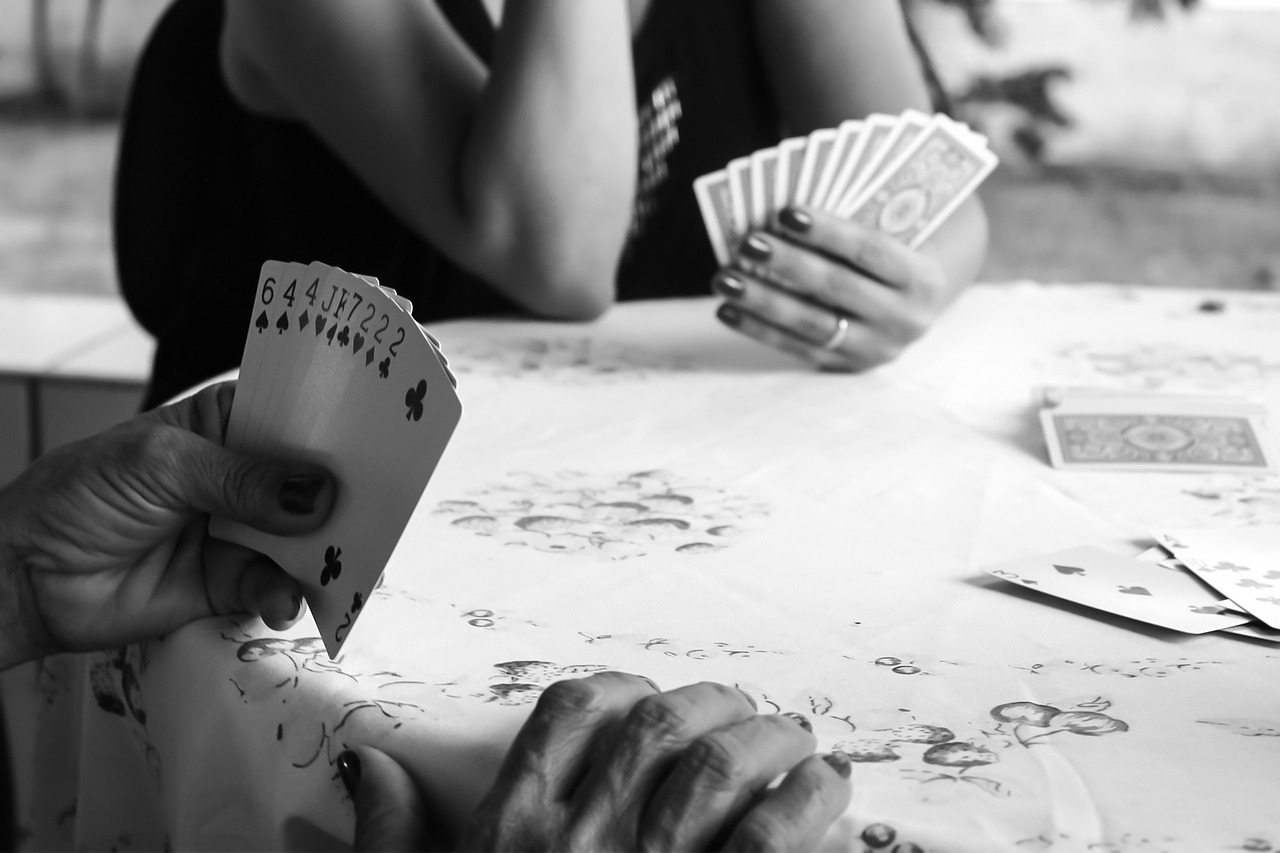
The Ultimate Guide to When to Fold in Poker
Knowing when to fold is just as crucial in poker as knowing when to bet. If you hold a weak hand, it’s often better to fold and save your chips than risk losing them all. In this guide, we’ll teach you the basics of when to fold in poker, including some of the most common situations you’ll encounter during a game. Also, check out tips on how to increase your chances of winning in poker to learn more strategies.
 You Are Priced Out of Your Draw
You Are Priced Out of Your Draw
One of the most common situations you should fold is when you are priced out of your draw. This means that the amount of money required to stay in hand (i.e., see the next card) is greater than the pot odds you are getting. For example, let’s say there is $100 in the pot, and the player to your right bets $20. To see the next card, you would have to call $20.
You Hold Less Than the Nuts
The “nuts” is the best hand possible given the current board. For example, if two clubs are on the board and you have two more in your hand, you have the “nut flush.” In general, you should only stay in a hand if you have the nut hand or a good chance of making the nut hand. If you don’t, you should fold because the chances of winning are slim.
You Have a Tight Image
Your “image” is how other players perceive you. Players will assume you only play strong hands if you have a tight image. As such, they may be less likely to bluff when you bet or raise, which means you have a better chance of winning the hand. On the other hand, if you have a loose image, players will be more likely to call your bets even when you don’t have a strong hand.
Your Preflop Hand Is Trash
 There are some hands that you should never play, regardless of your position or the pot size. These are known as “trash” or “garbage” hands, and they include things like off-suit cards below seven (e.g., two deuces), suited connectors below ten (e.g., eight-nine of clubs), and so on. If you’re dealt one of these hands, it’s usually best to fold preflop and wait for a better opportunity. Knowing when to fold is just as crucial in poker as knowing when to bet. If you hold a weak hand, it’s often better to fold and save your chips than risk losing them all. In this guide, we’ve taught you the basics of when to fold in poker. Thanks for reading.…
There are some hands that you should never play, regardless of your position or the pot size. These are known as “trash” or “garbage” hands, and they include things like off-suit cards below seven (e.g., two deuces), suited connectors below ten (e.g., eight-nine of clubs), and so on. If you’re dealt one of these hands, it’s usually best to fold preflop and wait for a better opportunity. Knowing when to fold is just as crucial in poker as knowing when to bet. If you hold a weak hand, it’s often better to fold and save your chips than risk losing them all. In this guide, we’ve taught you the basics of when to fold in poker. Thanks for reading.…

Essential Poker Cheating Techniques You Need To Know
Poker is a game that requires strategy, skill, and knowledge. You can also display different variations to make it more interesting for everyone involved. But if you are cheating, there is no need to worry about any of those things. All you need are some clever techniques to ensure your win every time. Also, you can click here to learn about poker analyzers that tell you the next move.
This article will talk about some of the most critical poker cheating techniques that you should know.
Colluding With a Friend
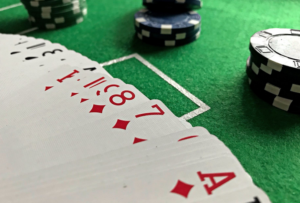 Colluding is another common form of poker cheating. This is when you get together with a friend who isn’t playing in the game and let him know your cards throughout the hand. Let’s say you are at a table with three other players. You can easily find an excuse to go to the bathroom and pass along your cards to a friend waiting outside. He can then relay them back to you so that the two of you always know what’s in your hand and what’s in everyone else ‘ s hands.
Colluding is another common form of poker cheating. This is when you get together with a friend who isn’t playing in the game and let him know your cards throughout the hand. Let’s say you are at a table with three other players. You can easily find an excuse to go to the bathroom and pass along your cards to a friend waiting outside. He can then relay them back to you so that the two of you always know what’s in your hand and what’s in everyone else ‘ s hands.
There are also other ways to collude without having an actual conversation. Using signals like subtle eye movements, coughing when certain cards come out, or even just shaking your head can all be ways to communicate with your friend and help you win the hand.
Dumping Your Chips
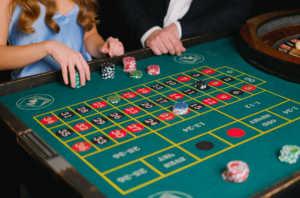 Dumping your chips is another way to ensure a win, and it’s one of the most straightforward techniques out there. All you need to do is subtly dump some of your chips into the pot just before the hand ends. This can be done by either pushing them forward with your fingers or dropping them all at once.
Dumping your chips is another way to ensure a win, and it’s one of the most straightforward techniques out there. All you need to do is subtly dump some of your chips into the pot just before the hand ends. This can be done by either pushing them forward with your fingers or dropping them all at once.
The only downside to this is that it doesn’t work if other players are at your table. If they see what’s going on, they will quickly call out and accuse you of cheating, which could lead to severe consequences. As long as your partner pays close attention and knows what to do, this is an easy way to win without getting caught.
Switching Cards
Switching cards is another old-school technique that still works to this day. All you need is a partner who can help you out and some sleight of hand skills. To do this, your partner will need to be sitting at the table next to you. Once it’s time for the hand to end, he will quickly switch your cards with his. This can be done quickly by using a simple sleight of hand moves called the palm switch.…
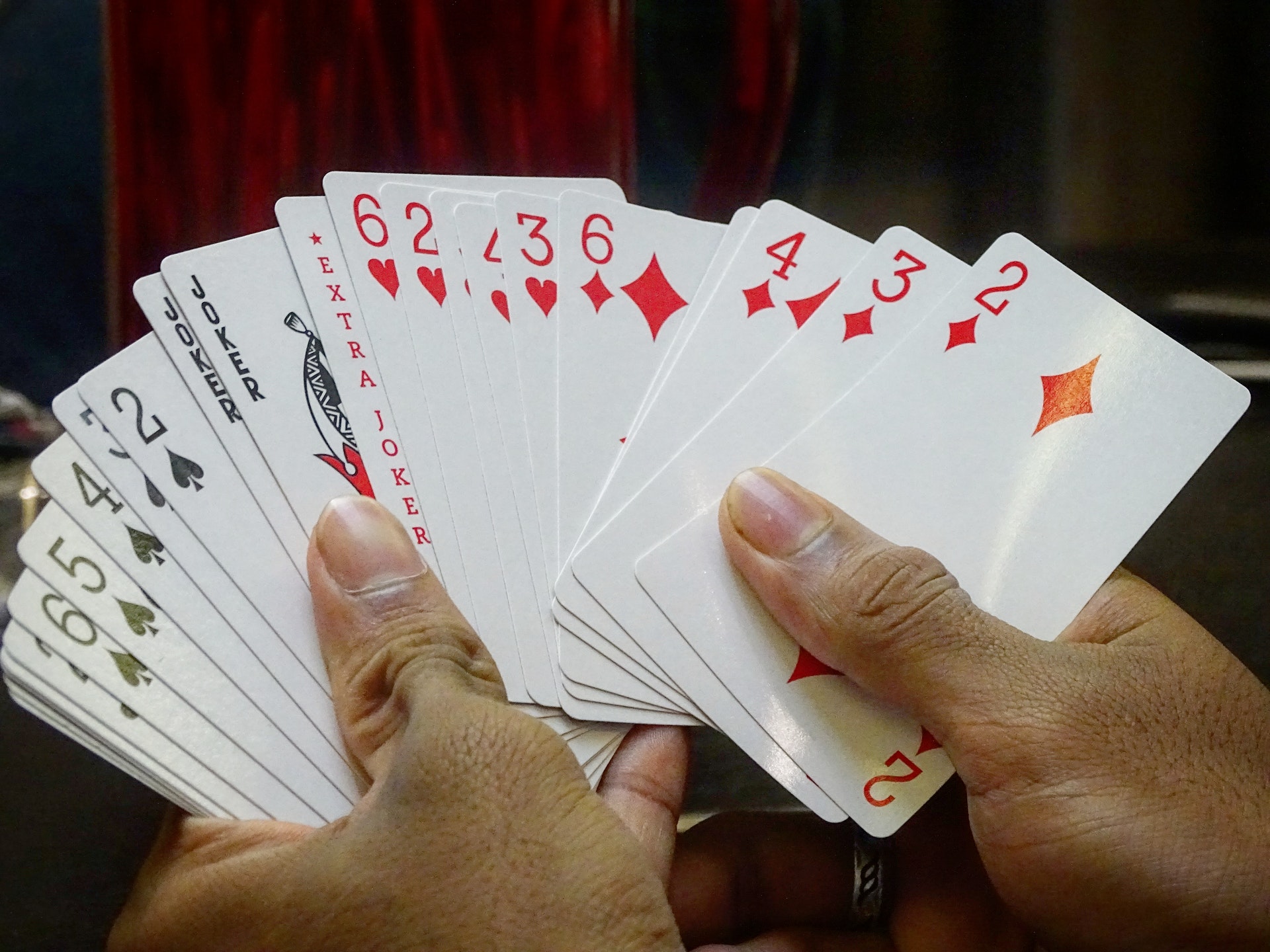
Ways to Improve Your Poker Game
Nowadays, poker is a very popular game. The popularity of internet poker has increased further. Many people have tried their luck at online poker tables and have become successful players. However, if you plan to become better at playing poker, you should learn more about card tricks. Below are ways to improve your poker game.
Start With Low Stakes
 All great poker players have had a rough start. For a beginner, it is best to play conservatively. It will depend on the other players, and the more experienced players will tell who is the weakest. Since no beginner can hide his inexperience in his first game, it is important to place low bets to limit losses.
All great poker players have had a rough start. For a beginner, it is best to play conservatively. It will depend on the other players, and the more experienced players will tell who is the weakest. Since no beginner can hide his inexperience in his first game, it is important to place low bets to limit losses.
Inexperienced players will find it difficult to make good decisions with their first bets to win the game. It is important not to place too many bets and lose the ability to beat your opponents. This is one of the mistakes players make especially new ones.
Maintain Your Cool
 Two things are common to all poker players: persistence and discipline. You have to improve the first one because only by being consistent can you reach all levels of the poker game: reading the game and studying the opponents; playing the odds. All of this happens simultaneously in the player’s mind with the game. These skills are only possible through hours of practice. It can be difficult to become a professional poker player if you are not consistent, and every time the game doesn’t go according to plan, discouragement wins. It is important not to lose heart and continue to work hard to improve.
Two things are common to all poker players: persistence and discipline. You have to improve the first one because only by being consistent can you reach all levels of the poker game: reading the game and studying the opponents; playing the odds. All of this happens simultaneously in the player’s mind with the game. These skills are only possible through hours of practice. It can be difficult to become a professional poker player if you are not consistent, and every time the game doesn’t go according to plan, discouragement wins. It is important not to lose heart and continue to work hard to improve.
Learn Body Language
 This is the least relevant aspect of poker, but it can impact the game’s biggest impact. While it is essential to analyze the behavior of your opponents, it can be challenging to do it correctly if you don’t have the experience or knowledge. To spot the signs that may indicate a certain intention or action.
This is the least relevant aspect of poker, but it can impact the game’s biggest impact. While it is essential to analyze the behavior of your opponents, it can be challenging to do it correctly if you don’t have the experience or knowledge. To spot the signs that may indicate a certain intention or action.
Professional players often cover their faces with scarves, sunglasses, caps, scarves, and shawls. However, the best players can avoid these extras because they have extensive experience in analyzing other players. This is a tricky way to win a hand and help you avoid giving clues to your opponent.…

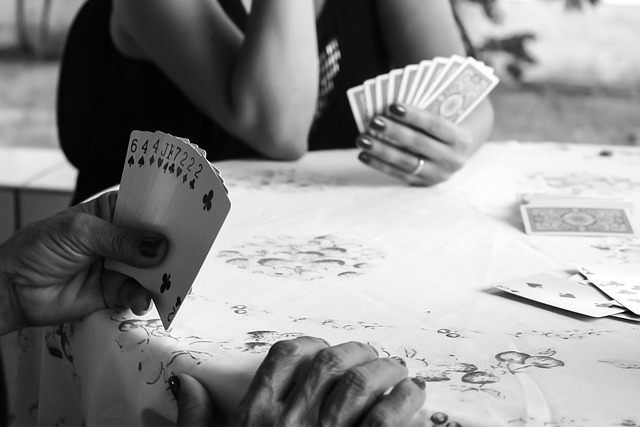

 You Are Priced Out of Your Draw
You Are Priced Out of Your Draw


